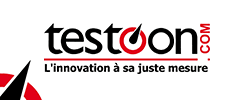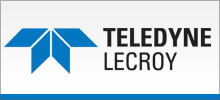The new DN6.22x series extends the Spectrum’s line of digitizerNetbox products by adding eight models based on the LXI instrumentation standard . The entry-level DN6.221 models offer versions with 12, 16, 20 and 24 channels, with each channel capable of sampling electronic signals at rates up to 1.25 GS/s. The top-of-the-line DN6.225 series increases performance by allowing up to 12 channels to sample at 2.5 GS/s or 6 channels at 5 GS/s.
The digitizerNetbox products include all the tools necessary to capture, digitize and analyze electronic signals. Simply connect the instruments to a host computer (e.g. laptop or workstation) and start up Spectrum’s SBench 6 software. Standard with every unit, SBench 6 lets you control all the digitizer’s operating modes and hardware settings from one graphical user interface.
The software also has a host of built-in features for waveform display, data analysis and documentation. Acquired and analyzed waveforms can be stored and exported to other devices or other software programs in a variety of formats such as Matlab, ASCII, binary and wave.
Each channel of a DN6.22x series digitizer features its own analog-to-digital converter (ADC), acquisition memory (1 GSample/channel) and independent signal conditioning circuitry. The ADCs are clocked synchronously to ensure that inter-channel timing measurements can be made with the best possible accuracy as well as maintaining a constant phase relationship.
Front-end amplifiers allow input signals to be correctly scaled, so that the digitizers can utilize the ADC’s complete 8-bit dynamic range. Programmable full-scale ranges (into 50 Ω termination) go from ±200 mV up to ±2.5 V or optionally from ±40 mV up to ±500 mV. The flexible signal conditioning also includes AC/DC coupling and programmable input offset.
The DN6.221 models, with 1.25 GS/s sampling rate, are matched with amplifiers that deliver over 500 MHz of bandwidth, while the DN6.225 models increase this to 1.5 GHz. According to Spectrum, the combination of fast sampling rate, wide bandwidth and long acquisition memory enables the digitizers to capture long, complex, high frequency signals. It also makes it possible to characterize and measure fast events that go down into the nano- and sub-nanosecond timing ranges.
The digitizerNetbox instruments also include a host of acquisition modes. Single Shot mode is available for capturing transient events and Multiple Recording stores numerous signals that arrive in bursts or packets. Gated Sampling synchronizes the acquisition with another event, while ABA mode mimics the operation of a chart recorder enabling segments with fast and slow sampling rates to be recorded simultaneously.
Each channel of the digitizerNetbox, as well as two external inputs, can act as a trigger source with the capability of combining all sources by AND/OR logic functions. The logic feature makes it possible to trigger only when you see specific patterns on the inputs, greatly simplifying complex trigger situations. Trigger events can also be date and time stamped so that you know exactly when, and how often, they occurred.
All DN6 series instruments feature an industrial chassis with integrated cooling, a replaceable dust filter and low noise power supplies. Front-panel SMA connectors are used for the channel inputs, external clock and external trigger, while LED lights provide a visual indication for the power, trigger and LAN status.
Based on the LXI instrumentation standard (following the LXI Device Specification 2011 rev. 1.4), the digitizerNetbox products are also designed for use in automated testing and remote applications. Full remote control is achieved through a simple GBit Ethernet port, which allows connection to any PC or local area network (LAN).
With their high channel density, the products are well matched to applications where arrays of receivers, sensors, detectors, rectifiers, antennas and other electronic devices are used and tested.
The products are programmable and come with drivers that allow users to write their own control programs in a host of popular programming languages, including C++, Visual Basic, VB.NET, C#, J#, Delphi, IVI, Java and Python code. Third party software support is also provided for LabVIEW, LabWindows and Matlab.






